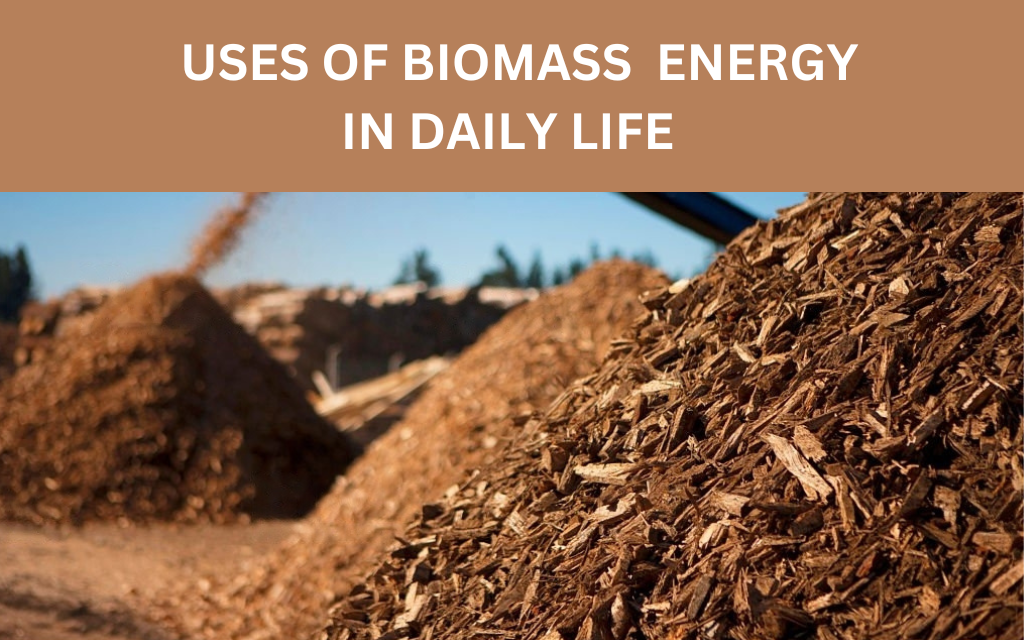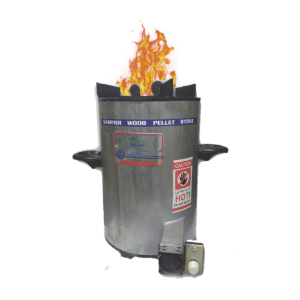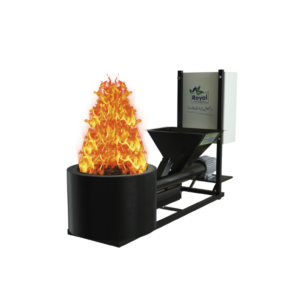Biomass energy is a type of renewable energy that comes from organic materials like plants and waste.
We use technology in many ways to help both our daily lives and the environment. Let’s explore some of the most common and important uses of biomass energy.
Biomass Energy: Heating Our Homes
People often use biomass energy to heat their homes by burning wood pellets, which consist of compacted sawdust and other wood materials, in special stoves or boilers. These devices provide a cozy heat source that’s eco-friendly and efficient.
Electricity Generation:
Biomass offers various methods for generating electricity. It can directly combust to heat water, thereby turning a turbine to produce electricity. Utilizing biomass stands as a clean and sustainable approach to electricity generation. Furthermore, it has the capability to transform into gas or liquid fuels. And, it can help to reduce greenhouse gas emissions.
Cooking Sustainably:
In many parts of the world, biomass is used for cooking. People burn wood, crop residues, or even animal waste to cook food. While this is a traditional method, it can contribute to indoor air pollution. Improved stoves are being developed to make this process cleaner and safer.
Transportation Fuel:
These fuels can be used in cars, trucks, and buses. Biomass-based transportation fuels are a cleaner and more sustainable alternative to gasoline and diesel.
Industrial Processes:
Biomass has the potential to generate heat and power for industrial processes. For instance, industries can utilize biomass to heat water intended for industrial boilers or to provide energy for operating machinery within factories. Biomass is a clean and efficient way to generate heat and power for industrial processes, and it can help to reduce reliance on fossil fuels.
District Heating:
Utilizing biomass, we can create district heating systems that actively distribute heat from a central source to multiple buildings. District heating can help to reduce energy costs and emissions in cities. Biomass is a clean and efficient way to provide district heating, and it can help to reduce reliance on fossil fuels.
Combined Heat and Power (CHP):
Moreover, biomass can generate combined heat and power (CHP) systems, in which the same fuel source efficiently produces both heat and electricity. CHP can help to improve efficiency and reduce emissions. Biomass is a clean and efficient way to generate CHP, and it can help to reduce reliance on fossil fuels.
Biochar:
They make biochar from biomass, which is organic material from plants or animals. This biochar acts like charcoal and can improve soil and help reduce greenhouse gases. Biochar is a promising new way to use biomass, and it has the potential to make a positive impact on the environment.
Biofuels:
They create biofuels from biomass, which includes organic material from plants or animals. These biofuels have various uses, such as powering vehicles, heating homes, and generating electricity.. Biofuels are a cleaner and more sustainable alternative to gasoline and diesel, and they have the potential to reduce our reliance on fossil fuels.
Conclusion
Biomass energy is a versatile and sustainable energy source that has a variety of uses in daily life. It is an important part of the global energy mix and is likely to play an even larger role in the future.
Other than the mentioned uses, biomass energy is also present in items such as shampoo and soap. Also, it’s used in constructing materials like insulation and flooring. With the growing need for biomass energy, we can look forward to seeing more products and applications for this renewable energy source.






